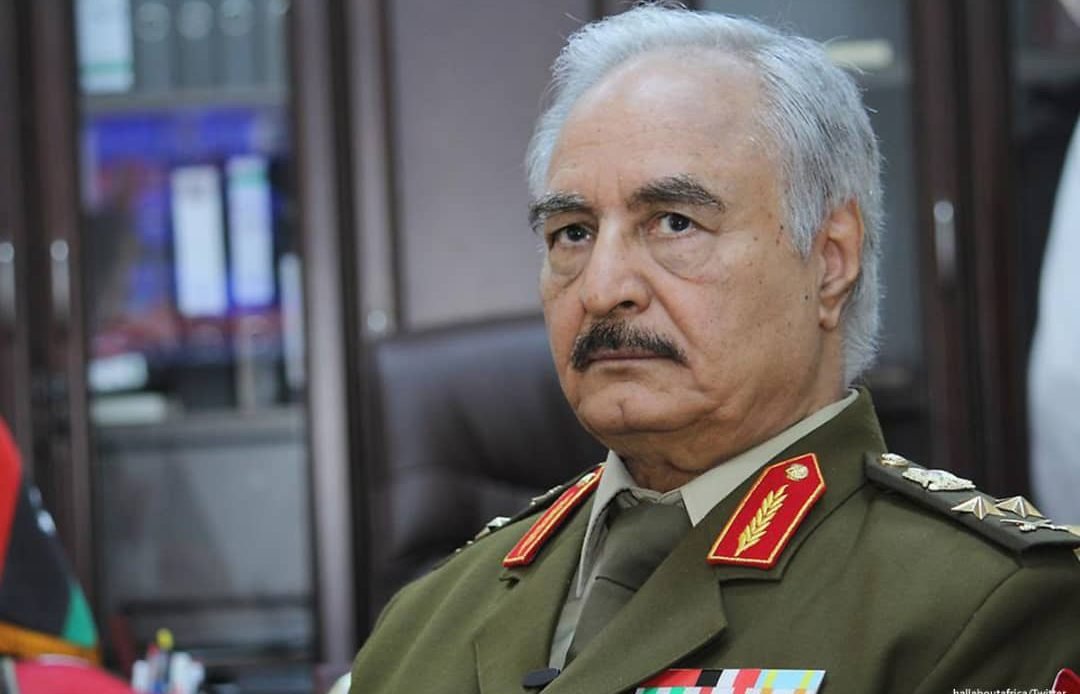Forces loyal to eastern Libyan military strongman Khalifa Haftar have shut off production at Libya’s major oil fields; an escalation that overshadowed an ongoing peace summit in the German capital Berlin.
Libya’s National Oil Corporation (NOC) said in a statement on Sunday that the major southwestern fields of El Sharara and El Feel were closing after forces loyal to renegade commander Haftar shut a pipeline. The shutdown would cut oil production by 800,000 barrels a day.
Forces loyal to Haftar also blocked oil exports from the war-ravaged country’s main ports Saturday. The move to cripple the country’s main source of income came after Turkey’s decision to send troops to shore up Haftar’s rival, the head of Tripoli’s UN-recognized government Fayez al-Sarraj.
Experts say any lasting closure could hit Tripoli hard since the government relies on oil revenues to fund its budget.
Leaders of Germany, Russia, Turkey, and France on Sunday gathered in Berlin to discuss ways to end the conflict in the North African country. Libyan Premier al-Sarraj and Haftar, the commander of an array of militia groups, also attended the summit.
The conference is aimed at ending the armed fighting between the UN-recognized government of Libyan Prime Minister Fayez al-Sarraj and Haftar’s rebel forces. It will also discuss the interference of foreign powers in the Libyan conflict through the provision of weapons, troops, and financing.
Diplomats said a joint military commission would monitor a truce, but details were unclear.
“We call on all parties concerned to redouble their efforts for a sustained suspension of hostilities, de-escalation and a permanent ceasefire,” said a draft of a communique, reviewed in advance by some media outlets.
The draft did not say whether Haftar’s self-styled Libyan National Army (LNA), which has launched a months-long offensive on the capital Tripoli with the backing of Egypt, the United Arab Emirates (UAE) and Saudi Arabia, needed to pull back.
Haftar had walked away from ceasefire talks in Moscow last week, but German Foreign Minister Heiko Maas visited Haftar’s eastern stronghold of Benghazi on Thursday to persuade him to join the conference.
Since 2014, Libya has been divided between two rival governments, the House of Representatives based in the eastern city of Tobruk and the internationally-recognized government of Sarraj or the Tripoli-based unity Government of National Accord (GNA).
Last April, renegade general Haftar, who backs the eastern government, launched an offensive to capture capital Tripoli and oust the GNA. Despite intense and deadly clashes between the two sides, Haftar has so far failed to achieve his objective.
Turkey supports the Libyan government and has sent troops to the North African country to help Sarraj’s government defend itself against the Haftar’s offensive.
Turkey and Russia mediated peace talks between Sarraj and Haftar, who held indirect talks in Moscow last week. But the talks ended without result after Haftar walked away. Sarraj had already signed a draft agreement on a truce.
Ahead of an international summit on in Berlin, President Vladimir Putin said Libya’s conflict is of great concern to Europe especially because the North African country’s wide-open doors have seen “an influx of refugees from the Middle East and Africa to Europe”.
In a column published by Politico on Saturday, Erdogan called on Europe to support Turkey’s work in Libya providing military support to Serraj’s government.
Libya has been the scene of increasing violence since 2011, when long-time former leader Muammar Gaddafi was toppled after a NATO military intervention.
His ouster created a huge power vacuum, leading to chaos and the emergence of numerous militant outfits, including the Daesh terrorist group.



